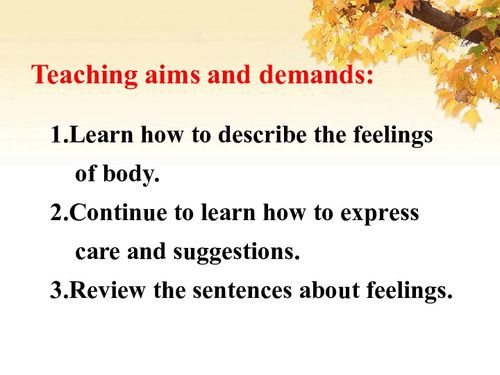Will AI Revolutionize Our Daily Lives? Discover the Latest Insights!
作者:佚名 来源:未知 时间:2025-01-24
How Will AI Affect Our Life? Recently, a wave of advancements in artificial intelligence (AI) has swept across various industries, sparking heated discussions about its potential impacts on our daily lives. From household chores to complex professional tasks, AI is gradually infiltrating every corner of our existence, reshaping the way we live, work, and interact with the world around us.

The integration of AI into our lives begins at home, where smart devices have become increasingly common. With voice assistants like Siri and Alexa, controlling household appliances, setting reminders, and even engaging in casual conversations have become effortless tasks. These AI-driven devices learn from our habits and preferences, adjusting the lighting, temperature, and even entertainment options to suit our needs. Moreover, AI-powered security systems are enhancing home safety by providing real-time monitoring and alerts, ensuring peace of mind for homeowners.

In the workplace, AI is revolutionizing industries and transforming job roles. From automated data entry to predictive analytics, AI is taking over mundane and repetitive tasks, freeing up humans to focus on more creative and strategic endeavors. For instance, AI algorithms in finance can analyze market trends and predict stock prices with remarkable accuracy, aiding investors in making informed decisions. Similarly, in healthcare, AI is being used to diagnose diseases, develop personalized treatment plans, and even assist in surgical procedures. By augmenting human capabilities, AI is not only increasing efficiency but also improving the overall quality of work.

Education is another sector poised for significant transformation due to AI. Adaptive learning platforms use AI to tailor educational content to individual students' needs, ensuring that each learner receives personalized instruction and support. These platforms analyze student performance data, identifying areas of strength and weakness, and adjust the curriculum accordingly. Furthermore, AI-driven chatbots can provide instant feedback and answer queries, enhancing the learning experience and fostering a more interactive educational environment.
As AI continues to evolve, its impact on transportation is becoming increasingly apparent. Autonomous vehicles, powered by advanced AI algorithms, are already being tested on roads around the world. By eliminating human error, these vehicles have the potential to significantly reduce accidents and improve road safety. Additionally, AI-driven logistics and delivery systems are optimizing routes and schedules, ensuring timely and efficient delivery of goods. The convenience and reliability of these services are reshaping our expectations of transportation and logistics.
In the realm of entertainment, AI is revolutionizing content creation and consumption. Algorithms analyze user preferences and behaviors, recommending personalized content that aligns with individual tastes. Streaming services like Netflix and Spotify use AI to curate playlists and suggest movies and TV shows based on user history and engagement. Furthermore, AI is enabling the creation of immersive virtual and augmented reality experiences, blurring the lines between fiction and reality.
However, the integration of AI into our lives is not without challenges. One of the most pressing concerns is job displacement. As AI takes over more tasks, traditional job roles are becoming obsolete, leading to widespread unemployment and economic instability. While new job opportunities are emerging in fields like data science and machine learning, the skills required for these roles often differ significantly from those in demand today. Therefore, upskilling and reskilling the workforce will be crucial in mitigating the negative effects of AI on employment.
Moreover, the ethical implications of AI are a source of ongoing debate. Bias in AI algorithms, stemming from the data they are trained on, can lead to unfair and discriminatory outcomes. Addressing this issue requires transparency in AI development, rigorous testing, and ongoing monitoring to ensure that algorithms operate fairly and ethically. Additionally, concerns about privacy and data security are heightened in an AI-driven world, where personal information is increasingly collected and analyzed.
Despite these challenges, the potential benefits of AI are too significant to ignore. By augmenting human capabilities, AI has the power to solve some of the most pressing problems facing society today. From combating climate change to eradicating diseases, AI offers unprecedented tools and insights that can drive progress and improve lives. Furthermore, AI's ability to learn and adapt means that its capabilities will continue to grow and evolve, unlocking new possibilities and opportunities as technology advances.
As we navigate the brave new world of AI, it is essential to approach its integration thoughtfully and responsibly. By embracing collaboration between humans and machines, fostering innovation, and addressing ethical concerns, we can harness the power of AI to create a brighter, more prosperous future for all. This future will be characterized by increased efficiency, personalized experiences, and unprecedented access to information and resources.
In conclusion, the impact of AI on our lives is profound and multifaceted. From home automation to workforce transformation, AI is reshaping the way we live and work. While challenges remain, the potential benefits of AI are too great to overlook. By embracing this technology with caution and foresight, we can ensure that its integration leads to a more equitable, efficient, and prosperous world. As we continue to explore and harness the power of AI, the possibilities for progress and improvement are limited only by our imagination and our commitment to ethical and responsible innovation.
- 上一篇: 赛尔号库卡应该如何分配学习力?
- 下一篇: 2022年邮政银行存贷款利率是多少?
































